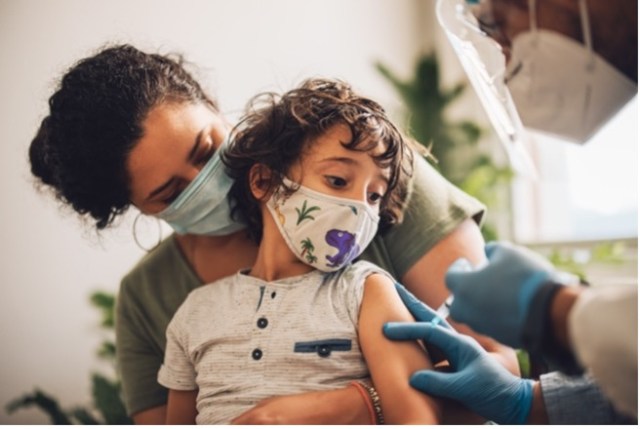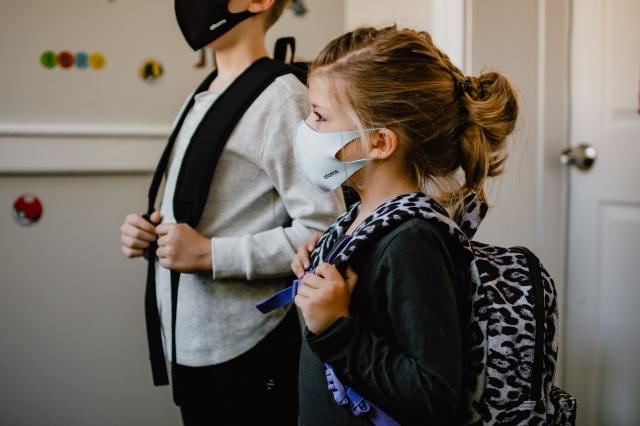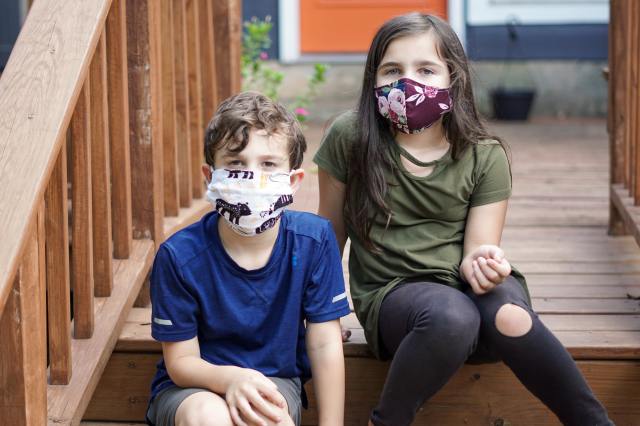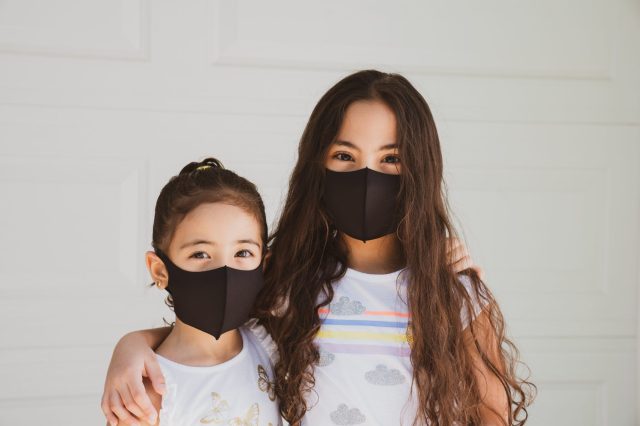After a long and anxious wait, COVID-19 vaccines are now available for kids age 5 to 11. Getting young kids vaccinated is critical for protecting our communities, since this is a large age group, and taking this step will give millions of parents peace of mind.
Paul Lewis, MD, a Kaiser Permanente pediatrician in Portland, Oregon, who specializes in infections in kids, says that as winter and the holidays approach, this is a good time to get kids vaccinated. He suggests using the COVID-19 vaccine authorization as an opportunity to get kids caught up on other vaccinations as well, since many people have fallen behind on regular appointments during the last 18 months. He also suggests that all children over 6 months old get their flu shot this year. Fortunately, he says, it’s no problem to get both shots at the same time.
We know parents, caregivers, and others may have questions about the safety of the pediatric COVID-19 vaccine. In this Q&A, Dr. Lewis answers common questions about it.

How well does the COVID-19 vaccine work for kids?
For kids under 12, the COVID-19 vaccine is incredibly effective. A recent study, affirmed by the Food and Drug Administration, that included more than 3,000 kids who got the pediatric dose of the vaccine found that it was more than 90% effective at preventing infection with symptoms.
How does the vaccine for children 5 to 11 differ from the vaccine for people 12 and older?
The pediatric vaccine is identical to the vaccine that’s used for older teenagers and adults, but the dose is one-third of the adult dose. That dosage was chosen because it was just as effective at providing protective antibodies but had a much lower rate of side effects.

What are the most common side effects?
Of the thousands of kids who were part of that recent study, zero had serious adverse events. Some kids get sore arms, redness or swelling, and a smaller percentage might get fatigue, muscle aches or fever. But they’re getting side effects at lower rates than teenagers and adults.
What is the risk of myocarditis?
Myocarditis, or inflammation of the heart, has occurred in young men who’ve been vaccinated but is pretty rare, with a handful of cases per million vaccination doses. Many cardiologists think that, since this is generally more common in teenagers than school-age kids, it’ll be less common after vaccination as well.
If my child has underlying health conditions, should I go ahead with vaccination?
Studies on this are ongoing. We know that older adolescents and adults with immunocompromised conditions or on immunosuppressive medications respond less well to vaccination, but they do respond. We also know that if they get COVID-19, they’re more likely to have worse outcomes, including needing hospitalization and intensive care. If someone has an underlying condition, such as an immunosuppressive condition, diabetes, heart disease or lung disease, we recommend getting an age-appropriate vaccine.

If my child is used to wearing a mask, can’t I just rely on that for prevention?
Social distancing and wearing masks are important layers of protection, but they are hard to continue day after day, especially for kids at recess or at lunch. So the vaccine is a big, thick layer of protection to help with all those other measures, and people should use them together.
How should I prepare my child for a vaccination appointment?
I’ve never met a kid who wanted to get a shot, but kids are resilient. You can help by explaining that you’ve been vaccinated and, while it does hurt, the pain goes away quickly and you’re there for them. At Kaiser Permanente vaccination sites, there will be people who are used to dealing with children and who know that there is a lot of emotion and fear. Kaiser Permanente staff and parents can work together to make it a minor experience for kids.
To schedule a vaccination and learn more, visit kp.org/covidvaccine/nw.
Is there anything you can do to help reduce the pain that happens in the arm after getting the vaccine? Does heat or cold compresses work better?
I don’t know of any magic or comparison between heat and cold. My advice to parents would be to avoid focusing on it; it is not much different than any other injection- actually smaller in volume. Use acetaminophen or ibuprofen if you normally would for the degree of pain.
My son keeps taking his mask off during recess at school, is he safe since he’s outside?
Different states and different school districts have varying policies on using masks outside. In general, the risk of getting COVID outside is MUCH less than in any indoor setting. Please try to follow the school’s rules—they are doing there best in a difficult situation and parents can help by being supportive
I know the CDC says it’s safe to get both the flu vaccine at the same time as the covid vaccine, but as a pediatrician would you recommend waiting a week or two in between those vaccines?
Simultaneous vaccines are recommended because it is hard for individuals and families to make multiple appointments or to fit multiple visits into their schedules. I got mine together last week!
Are there any over the counter medications that my child should or should not take right after getting the vaccine?
CDC recommends not taking OTCs unless you need them for symptom management.
I have a 17 year old son with a heart murmur and a left ventricular bundle branch block, is he at a higher risk for Myocarditis with the vaccine?
Hard question, but I would check with his cardiologist who knows his case the best.
I have a child with a compromised immune system; with the new variant heading to the US, should I consider homeschooling during the winter months?
We will know much more about the new variant by January. It is not yet widespread enough in the US to worry and when school starts again after New Years we should know more about the risk to vaccinated and unvaccinated kids.
Do you have an estimated timeline of when kids under 5 will be approved for the vaccine?
Hard to make a guarantee but hopefully by spring of 2022.










